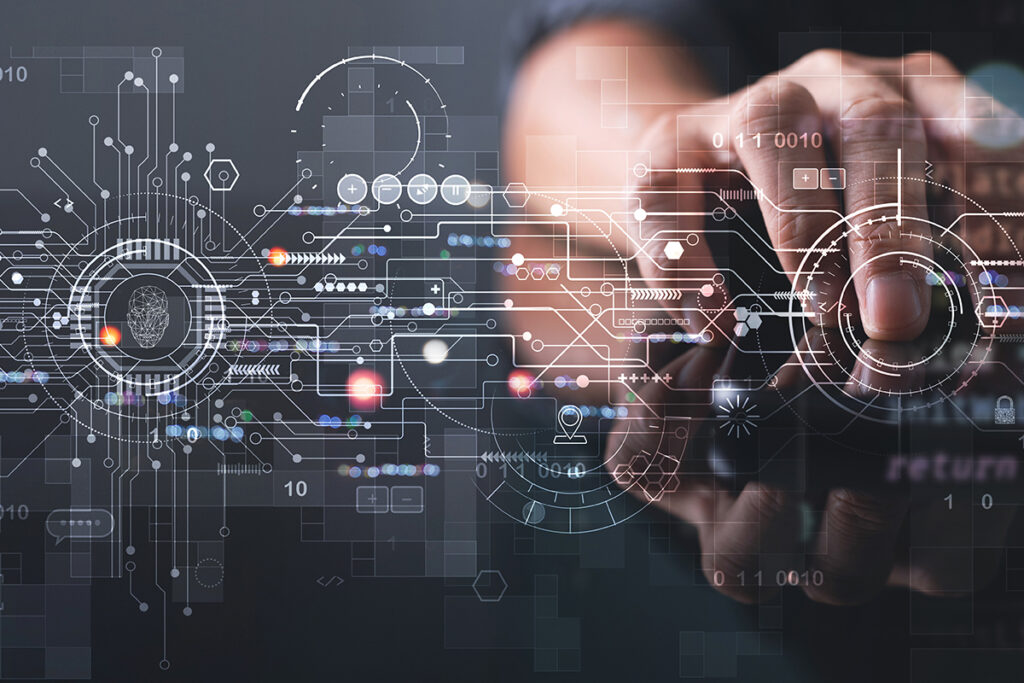
The Internet of Things (IoT) is a term used to describe the ever-growing network of connected devices that are able to communicate with each other and the internet. IoT technology is being used in a variety of industries, from healthcare to manufacturing, to make processes more efficient and cost-effective. In the near future, it’s expected that IoT will become even more prevalent and have an even greater impact on our lives.
IoT platform is made up of a network of connected devices that are able to communicate with each other and the internet. These devices can range from something as small as a smartwatch to something as large as a factory. The data that these devices collect is then sent to a central server, where it can be analyzed and used to make decisions. For example, a factory could use IoT technology to monitor the performance of its machines and make adjustments if needed.
The potential applications of IoT technology are almost limitless. In the healthcare industry, IoT can be used to monitor vital signs and alert medical professionals if something is wrong. In the manufacturing industry, IoT can be used to monitor the performance of machines and alert workers if something needs to be fixed. In the home, IoT can be used to control appliances, lights, and security systems.
As it continues to evolve, it’s expected that it will become even more integrated into our lives. For example, smart homes are becoming more popular, with devices that can be controlled remotely from anywhere in the world. Smart cities are also becoming more common, with sensors that can monitor traffic, air quality, and more.
The Relation Between 5G and IoT
As the number of connected devices increases, the amount of data generated by IoT devices also increases, creating more opportunities for analysis and insights. This, in turn, can lead to more advanced and sophisticated applications of IoT. The integration of 5G networks and edge computing with IoT devices can also lead to faster data transmission and processing, opening up new possibilities for IoT applications.
5G is a wireless communication technology that is expected to offer faster speeds, lower latency, and more reliable connections than its predecessors. This will enable a wide range of new applications and services, including the ability to connect more devices to the internet. As a result, 5G is expected to be a major driver of the IoT industry.
It is expected to provide the necessary bandwidth to enable the large-scale deployment of IoT devices. This will allow for more devices to be connected to the internet, allowing for more data to be collected and analyzed. With more data, businesses will be able to make better decisions and develop more efficient processes.
It will also enable the development of new services and applications. For example, 5G will enable the development of autonomous vehicles, which will be able to communicate with each other and the surrounding environment. This will allow for more efficient transportation systems and reduce traffic congestion.
Consumer and Enterprise IoT Applications
Consumer IoT applications are designed to make everyday life easier. Smart home devices, such as thermostats, lights, and security systems, are becoming increasingly popular. These devices allow users to control their environment from their smartphone or tablet. Wearable technology is also becoming popular, allowing users to track their fitness, monitor their health, and even control their home environment.
Enterprise IoT applications are designed to help businesses become more efficient and productive. IoT devices can be used to monitor and control production processes, track inventory, and automate tasks. IoT can also be used to collect data from customers, allowing businesses to gain valuable insights into their target market.
You can always contact us at www.isimplatform.io or at info@isimplatform.io for iSIMPlatfom’s smart city solutions.

No responses yet